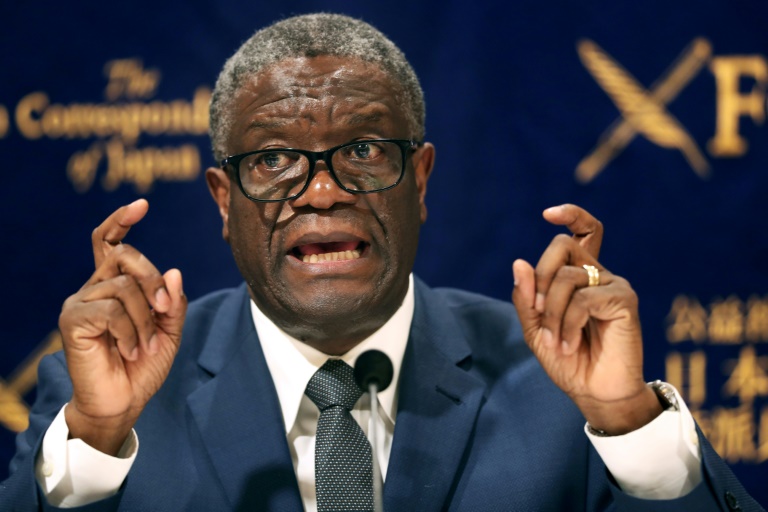Nobel Peace laureate Denis Mukwege on Wednesday urged politicians in the Democratic Republic of Congo to engage in the fight against sexual violence and the “martyrdom of populations” in the east of the country.
“The increasingly little commitment by our country’s political leaders at the provincial and national levels has often been the missing link” in the fight against this violence in the eastern part of the country, Mukwege lamented.
The renowned Congolese gynaecologist and surgeon, had been invited by the leader of the eastern South Kivu province assembly to address elected officials on the question of sexual violence and the use of rape as a weapon of war in the country.
Mukwege was awarded the Nobel prize in 2018, for his work to try to end the use of sexual violence as a weapon of war and armed conflict.
“Over the last 20 years, massacres and assassinations have left our villages and towns in mourning,” he told them.
“Women, children and even men in our province have suffered rape with extreme violence, committed for the vast majority, in total impunity,” he added.
Such atrocities “should challenge our consciences and our humanity”, he said.
His comments came a day after DR Congo’s government vowed to speed up a security campaign in its troubled east, where hundreds of people have been massacred by armed groups since the start of the year.
– Response to Kagame –
More than 120 armed groups roam eastern DRC, many of them a legacy of bloody wars more than a quarter of a century ago.
In addition to his work as a gynaecologist, Mukwege, 66, has been campaigning for punishment of rights abuses committed during the two Congo Wars, of 1996-98 and 1998-2003, whose aftermath still afflicts the east of the country today.
In May, Rwandan President Paul Kagame dismissed a UN investigation into alleged war crimes as “highly politicised”.
“Mukwege becomes a symbol or a tool of these forces you don’t get to see.
He is made a Nobel laureate, he’s told what to say,” the president added.
In response, Mukwege compared Rwanda’s years of campaigning for justice over the 1994 genocide there and attitudes regarding atrocities committed during the conflicts in DR Congo.
“Go to this country (Rwanda) and dare to take a negationist line regarding what happened there.
They won’t find you alive,” he said.
“But when people practise negationism here, it’s as if it was normal.
“In politics, there are no friends: there are only interests,” he added.
“If we don’t defend our interests, don’t expect anyone else to defend them.”











